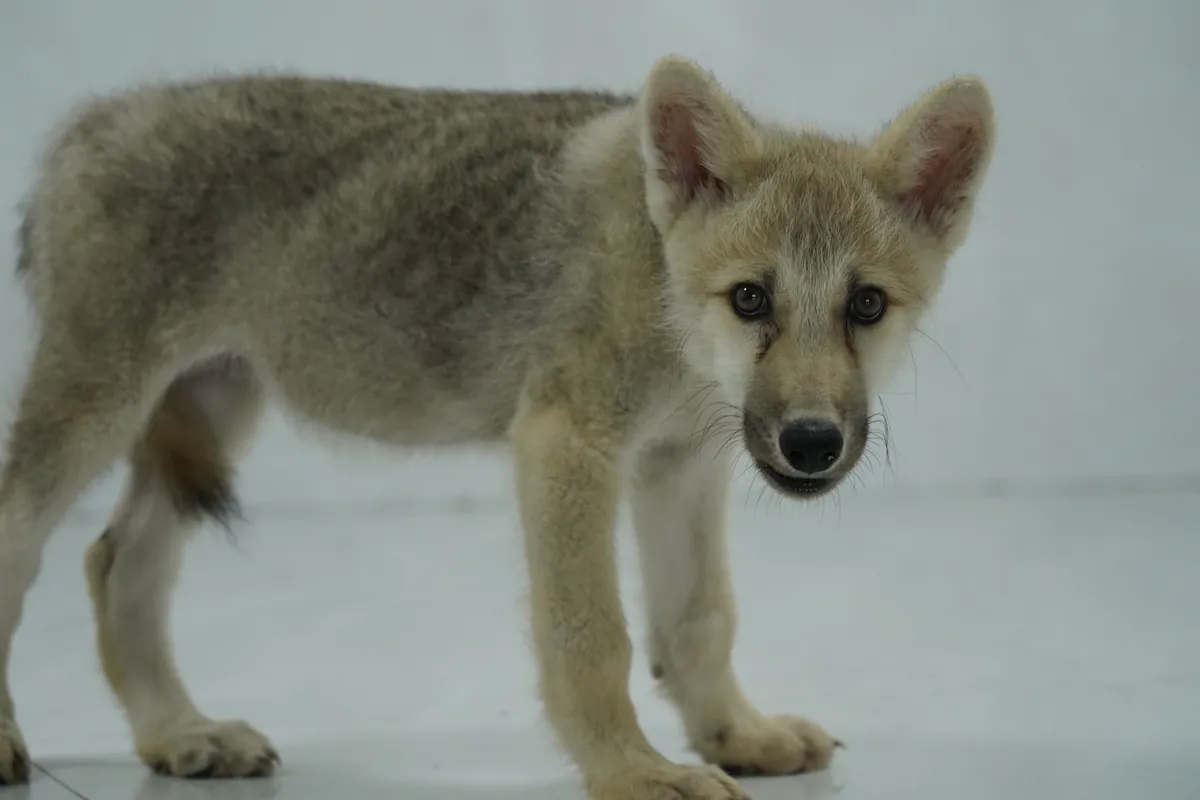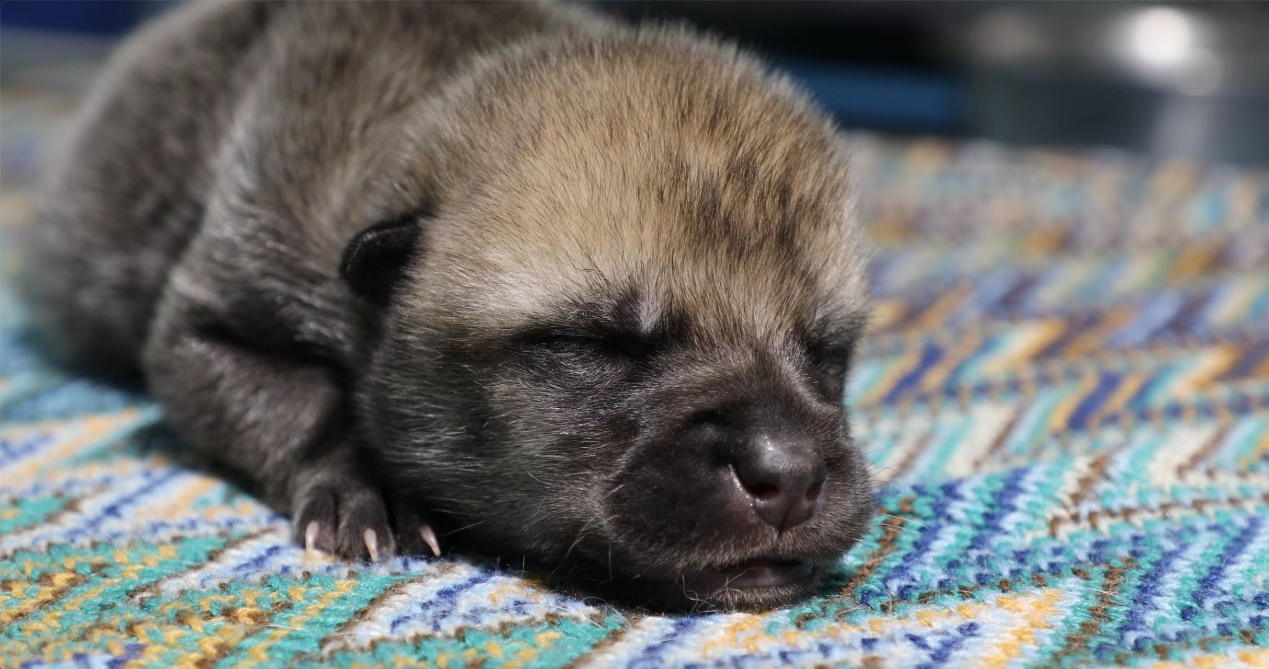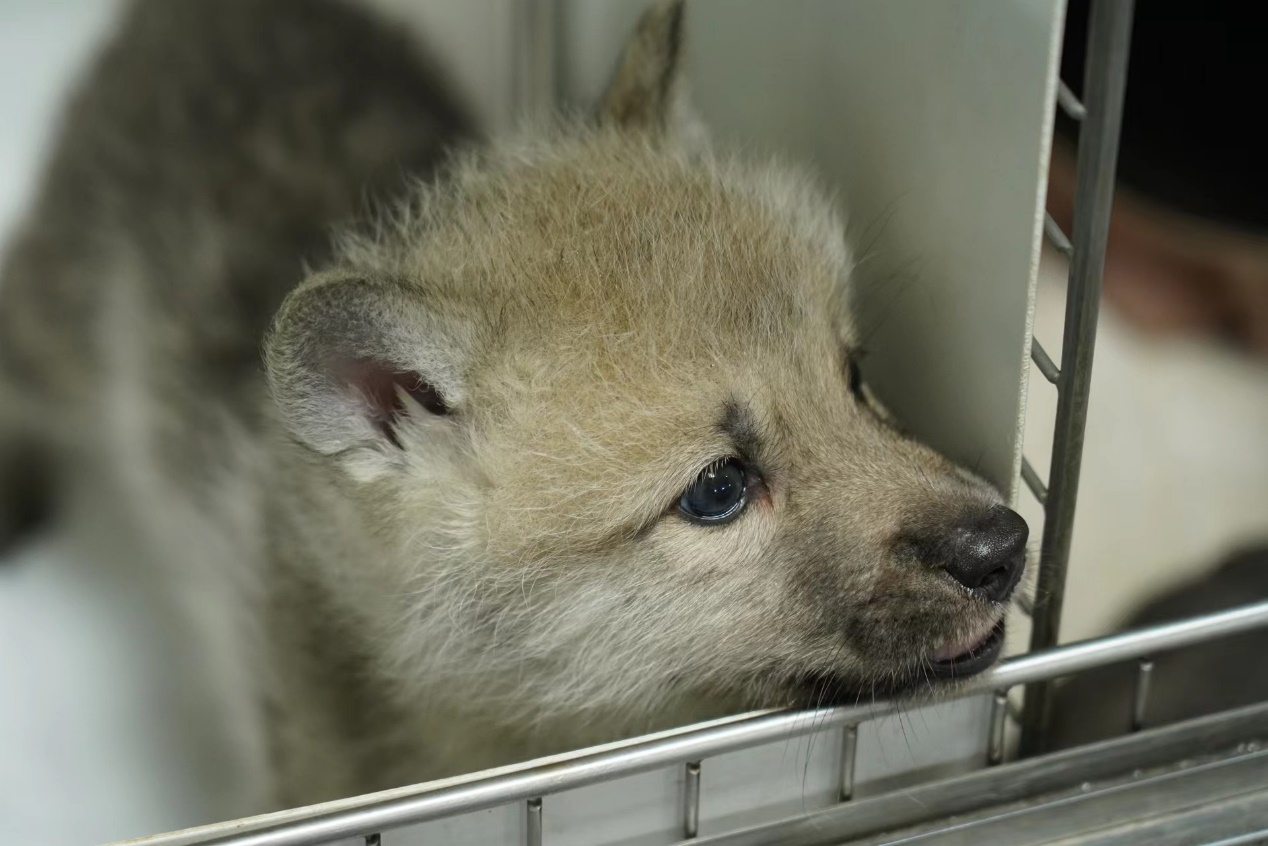
 Maya is now 100 days old and living with its beagle surrogate mom. Image courtesy of Sinogene Biotechnology
Maya is now 100 days old and living with its beagle surrogate mom. Image courtesy of Sinogene Biotechnology
A Chinese biotech company has cloned an Arctic wolf for the very first time. Not only is the young whippersnapper a milestone in the field of cloning technology, but the researchers believe this feat could provide hope for endangered species that are struggling to survive.
The female Arctic wolf named Maya was born in Beijing on June 10. Revealing their creation at a media conference last week, Sinogene Biotechnologies showed a video of the young pup appearing healthy and happy.
Maya was created using DNA taken from the skin sample of an Arctic wolf that lives in Harbin Polarland, a controversial amusement park that houses polar bears. The genetic material was then inserted into the denucleated egg cell of a female dog that was "in heat." A beagle was then chosen as a surrogate mother to gestate the embryo in its womb until birth.

This process is known as somatic cell nuclear transfer. It’s essentially the same method that was first used in Dolly the Sheep back in 1996. Since that breakthrough, a number of mammal species have been cloned, including a cat, deer, dog, horse, mule, ox, rabbit, and rat.
A very similar technique was also used to clone a Pyrenean ibex, aka the bucardo, which is the only example of an animal being resurrected from extinction (albeit very briefly).
Sinogene waited 100 days after Maya's birth to reveal the development, but now they report that the wolf pup is perfectly fit and healthy. According to the Global Times, a second cloned Arctic wolf could be born as early as his week.
"This is not only the achievement of our research cooperation with Harbin Polarland, but also our new attempt and breakthrough in the protection and breeding of wild and endangered animals," Mi Jidong, general manager of Sinogene, reportedly said during the news conference. "From the start of the project in 2020 to the healthy birth of the wolf pup in June of this year, we have overcome many difficulties. Looking back, it's worth it."

The Arctic Wolf (Canis lupus arctos) is a subspecies of the grey wolf that can be found in the High Arctic tundra of northern Canada. It’s distinguishable from other wolf species by its slightly smaller frame, narrower skull, and white fur, ideal for camouflage against the snow.
This is far from Sinogene’s only success in the realm of cloning. The Beijing-based company operates a successful pet cloning service, in which people can receive a clone of their favorite dog or cat. In 2019, they even produced the world's first cloned police dog with the help of DNA taken from an award-winning police sniffer dog.
Get updates on this story iflscience.com
